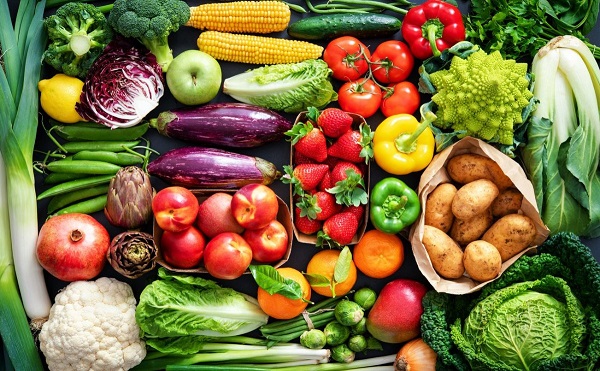
We must eat healthy foods to prevent diseases
It is common knowledge that Ghana is blessed with a variety of dishes or diets, and this cuts across all the ethnic groupings, a fact attested to by those who visit the country.
Advertisement
Unfortunately, while foreigners praise us for our tasty, good and healthy foods, we have not only developed the taste for foreign diets but also tended to shun our own dishes and foods.
This has resulted in more and more people getting struck with non-communicable diseases that were hitherto not prevalent in the country.
While the Daily Graphic believes that globalisation has opened us up to foods from other parts of the world, we find it unfortunate that we have become more westernised than those living in Europe and other parts of the world also got it wrong in the portions of the foreign diets we consume, hence our struggle with diseases that were unknown or not common in the past.
These include hypertension, heart diseases, diabetes and some cancers.
We have also devoted less and less time to the preparation of our local and nutritious meals which are the envy of foreigners, who have always admired us for those meals.
We have, instead, resorted to fast foods, commonly referred to as junk food elsewhere, not occasionally but quite often.
This trend has only been confirmed by a needs assessment study conducted by a team from the School of Public Health of the University of Ghana, Legon.
According to a co-Chair of the team, a lecturer at the School of Public Health, Professor Richmond Aryeetey, the findings meant that instead of the traditional maize-based foods and other local foods, Ghanaians were now eating more rice and baked and fried foods associated with Western countries.
The Daily Graphic salutes the team for not only pointing out the problem but also putting together detailed guidelines that include the dietary options available in the country to help us eat right, known as the Ghana Food-Based Dietary Guidelines.
Howbeit, we urge the government to help make the document known and widely available to inform our eating habits, and thereby keep us healthy.
One of the key findings of the School of Public Health is the inadequate frequency, quantity and variety of fruits and vegetables intake, as well as the sub-optimal intake of legumes and nuts in the diets of Ghanaians.
We note that although Ghana is blessed with various fruits, such as coconut, pineapple, watermelon, mango, orange, banana and the like, their high cost, especially when they are not in season, prohibits people from developing the lifestyle of fruits consumption on a daily basis.
We need to find ways to preserve the fruits and make them available all-year round, so patronage can naturally improve.
Back in the days, fruits were often part of the meals of students in the boarding house, which stayed away most of the non-communicable diseases.
We, therefore, urge schools to ensure that students who are still in their formative years enjoy some fruits as frequently as possible as part of the meals provided them.
We should also go back to our ‘kontomire’ or cocoyam leaves, garden eggs, okro, ‘abedru’ and all the greens that keep us healthy, and as much as possible minimise our dependence on the pizzas, noodles, burgers and fried foods as our main meals during the day.
People, especially those in the urban areas, have departed largely from boiled plantain, yam and cocoyam, banku, fufu, kokonte and tuo zaafi and are eating plenty French fries and chicken regularly.
Even when we eat our favourite ‘red red’ or gari and beans (gobe), we take it with too much oil.
We also find that while the COVID-19 pandemic gave birth to many eateries, especially those that provide delivery services, there is too much dependence on spices and preservatives, instead of our fresh vegetables, which is not good for our health.
The Daily Graphic also finds it interesting and worrying that most Ghanaian and African meals focus a lot on carbohydrates, instead of protein, minerals and vitamins provided by vegetables, so the soups and stews are smaller in quantity, compared with the cooked yam, rice, banku, fufu, etc.
People should eat to remain healthy.
Ghana abounds in so many foods but, somehow, we have put a lot of our nutritious foods aside and are eating imported, highly processed foods which are not helping us.
We must right this wrong to live long.




